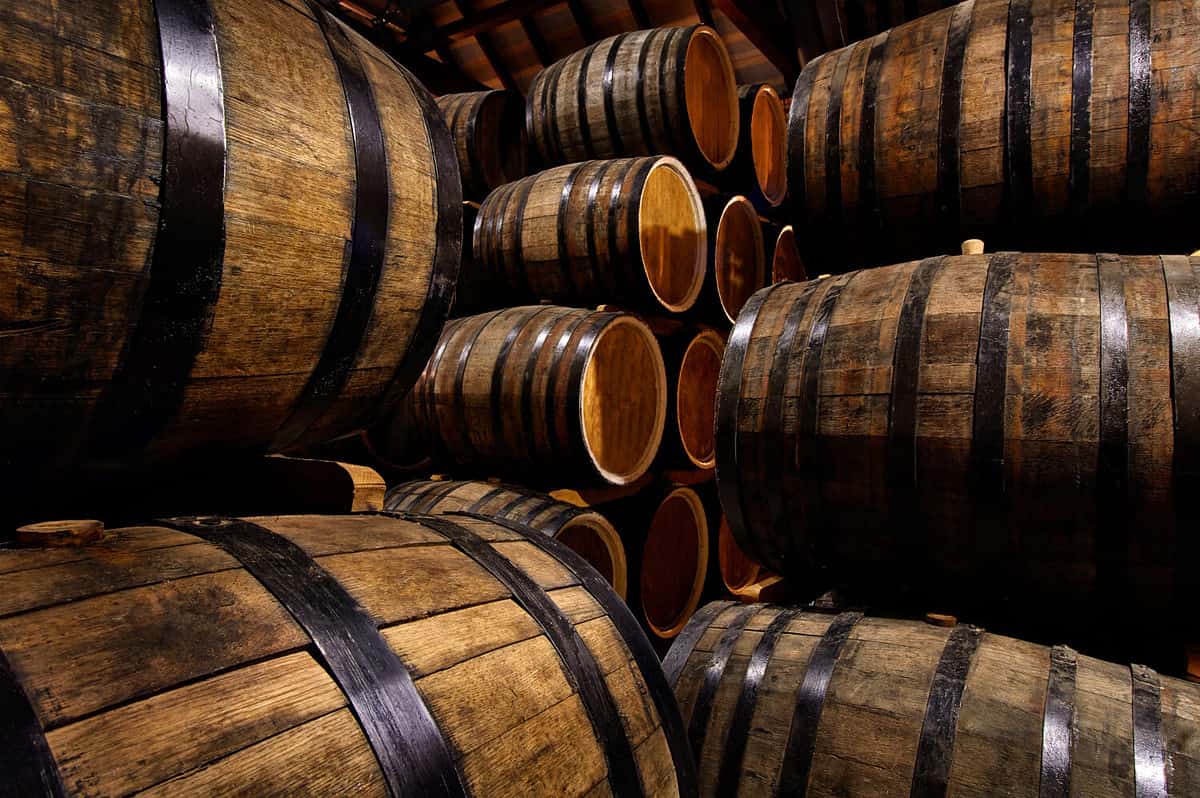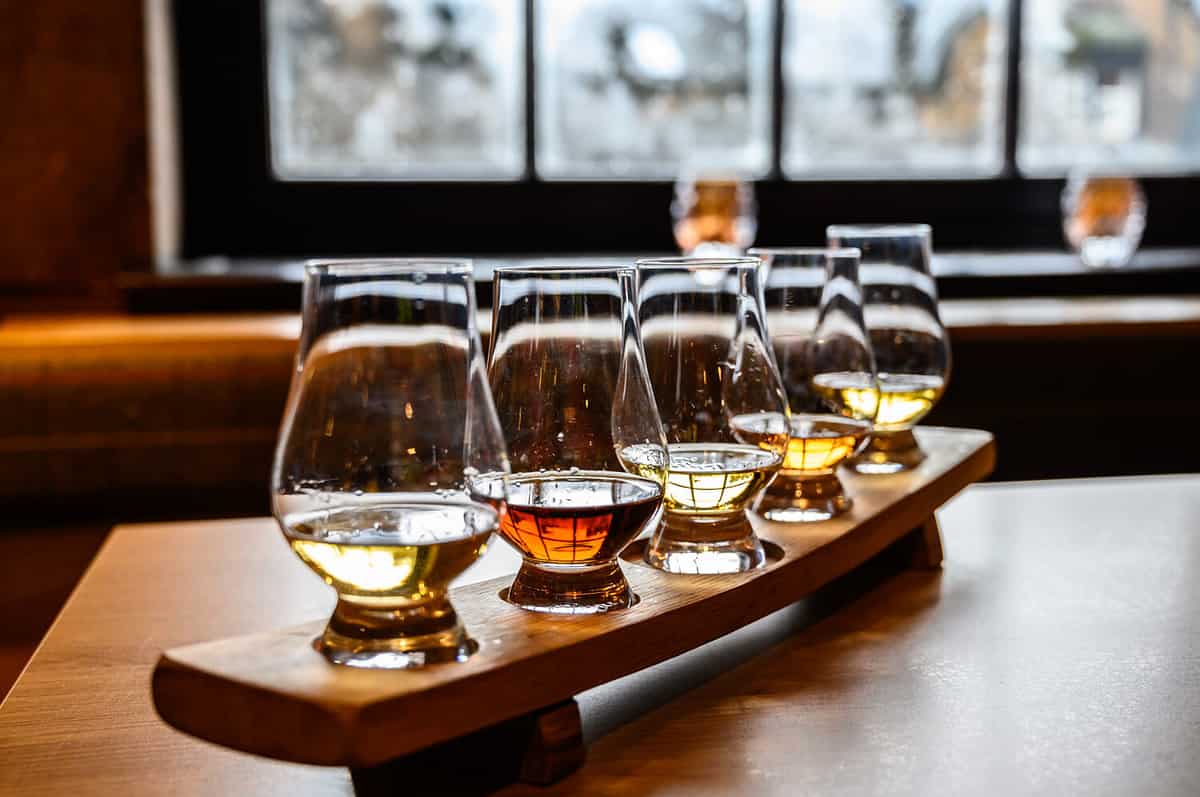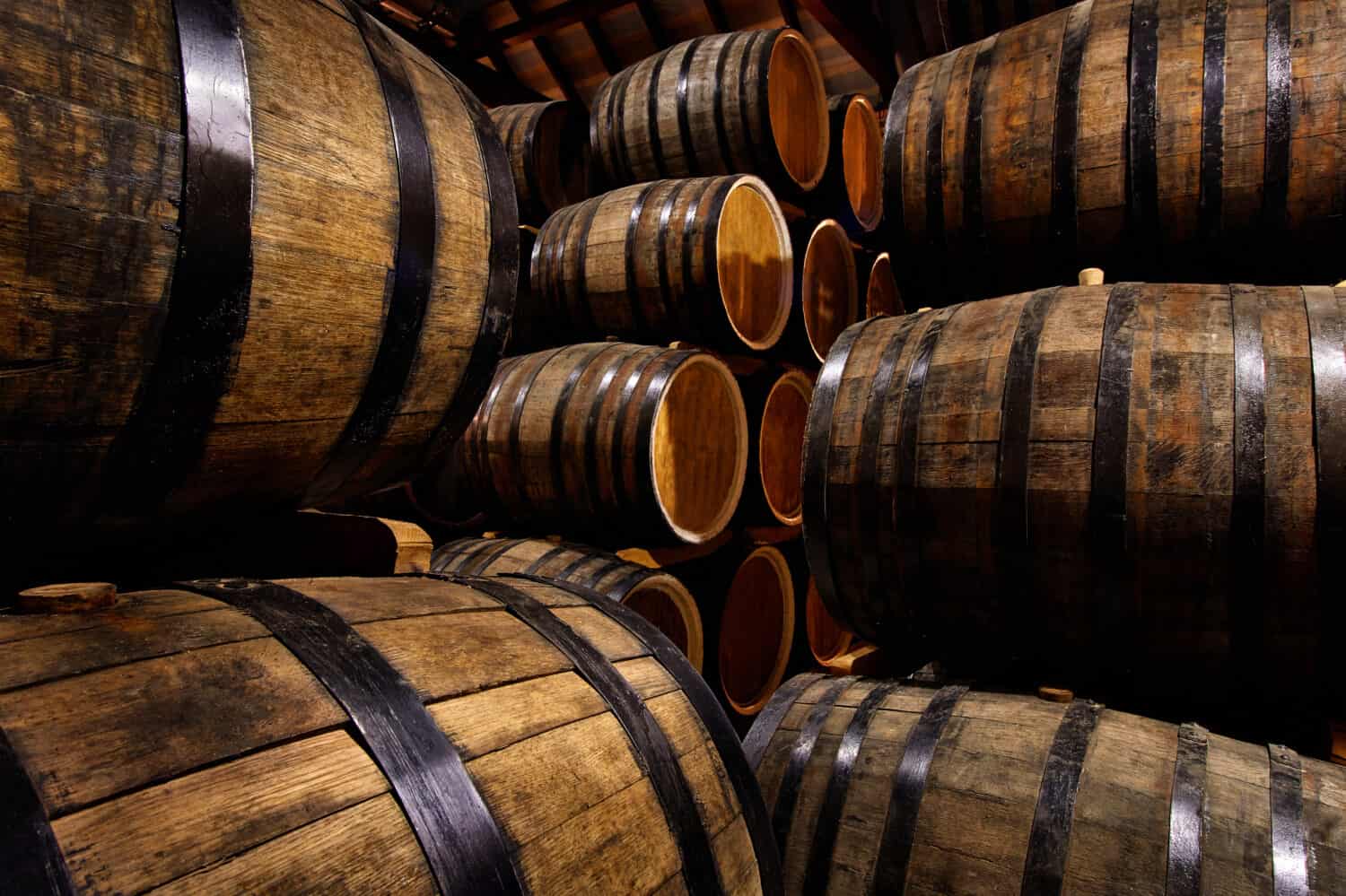Cognac vs. Whiskey: What makes them different? While they are both spirits, that's as much as they have in common. Cognac is made from white wine grapes, while whiskey is made from different grains, depending on the whiskey.
Another unique difference between these spirits is how they are distilled. Cognac is distilled twice in copper pot stills and aged for at least two years in French oak barrels. Whiskey is also distilled in copper pots but aged in oak barrels for at least three years. Because of this aging process, they have different taste differences, especially around the type of cognac or whiskey you get.
This guide reveals those taste, price, and other differences. You'll discover the endless benefits of drinking either one, especially when it comes to heart health.
What Makes Cognac vs. Whiskey Different?

Cognac and whiskey are aged differently.
©GolubSergei/Shutterstock.com
Cognac's origin comes from the 16th century. It was when the French and Dutch brought their wine and came to England. This wine was distilled with a higher strength and became known as cognac. While brandy and cognac are often confused because they're both made from grapes, cognac is slightly different because it's made from white grapes. Brandy is made from any grape.
Whiskey's history dates back to somewhere between 1,000 and 1,200 AD. Scotland and Ireland had no grape vineyards to make wine, so they turned to fermenting grain smash. Throughout the years, Scotland and Ireland perfected the whiskey-making process.
Looking more at the history between cognac and whiskey can give you a better idea of how these spirits influenced different cultures and why they stand alone.
The Historical Differences Between Cognac vs. Whiskey
When it comes to history, one of the main differences between cognac and whiskey is that whiskey is much older. It wasn't until the 1400s that whiskey distilleries opened in Scotland and Ireland. When it comes to whiskey in America, this alcohol didn't arrive until the 17th century. It arrived when colonists arrived in the New World. The evolution of whiskey has changed over the years with different fermentation processes and grains.
Cognac was introduced through a Dutch distillation method, enabling them to preserve their wine. Cognac is typically recognized as a type of brandy that comes from white wine. In the 15th century, cognac was originally developed through continuous modifications. Back then, cognac was originally seen as Charente’s wine. Over time, the stills were modified during transport to preserve Charente’s wine, and the distillation process was tweaked. This led to the introduction of cognac.
Taste and Price Differences
The taste differences between whiskey and cognac are miles apart. Cognac is typically fruity and sweeter. It has a wine-like taste. Whiskey, however, will typically taste smoky. It can also have hints of different vanilla notes. While it can also be sweeter, it depends on the level of alcohol in a particular whiskey bottle.
When it comes to occasions, cognac and whiskey can be drunk the same way. They are great for an after-dinner drink to aid digestion. They are both best served neat and at room temperature. You should also let both of them breathe, taking in the full aroma of the cognac or the whiskey.
The price differences between cognac and whiskey are incomparable. It comes down to branding and prestige. For example, whiskey is more valuable because of its maturation and process. There's the cost of keeping the barrels in a consistent environment that ages the whiskey throughout the years.
However, some cognacs and whiskeys in the world exceed millions. For example, the most expensive cognac in the world is $2 million, known as Henri IV Dugnon Heritage Cognac. The most expensive whiskey in the world is the Emerald Isle Collection at $2 million.
Nutritional Benefits of Each
There are benefits to moderately drinking cognac and whiskey. Some of the shared benefits include lowering the risk of heart disease. This is because of the polyphenols found in both that are found to improve your overall heart health. Cognac, in particular, has antioxidants that reduce the risk of diabetes and fight diseases.
On the other hand, whiskey can lower your blood pressure and improve your memory. This is also because they have polyphenols. Other benefits include reducing stress and improving digestion.

©barmalini/Shutterstock.com
Cognac vs. Whiskey: What's the Better Choice?
Choosing either cognac or whiskey is a matter of preference. It depends on whether you want the sweeter and fruity taste in cognac. Or you can select a smokier flavor that's found in whiskey.
Either spirit is perfect for an after-meal drink. They both have numerous health benefits, especially regarding heart health. Overall, you'll discover that each of these spirits stands alone. Trying both can give you an idea of what you like more.
The image featured at the top of this post is ©GolubSergei/Shutterstock.com

